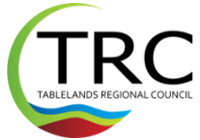Qualification levels help to evaluate the economic opportunities and socio-economic status of local workers in a particular industry.
The level of qualifications in a workforce relate to a number of factors including:
- The age of the workforce;
- The skill and qualification level required to enter an industry;
- The professional or working ambitions of people (to seek education as youth or retraining as adults);
- The opportunities afforded to people to continue studying beyond compulsory schooling.
Educational Qualification statistics should be looked at in conjunction with Field of qualification and Occupations data for a full education analysis for Tablelands.
Data source
Australian Bureau of Statistics (ABS) – Census 2016 & 2021 – by place of work
Current industry:
Current benchmark:
Sex:
| Local workers qualifications | |||||||||
|---|---|---|---|---|---|---|---|---|---|
| Tablelands - All industries | 2021 | 2016 | Change | ||||||
| Qualification level | Number | % | Queensland | Number | % | Queensland | 2016 - 2021 | ||
| Bachelor or Higher degree | 1,878 | 20.0 | 29.3 | 1,556 | 18.1 | 25.1 | +322 | ||
| Advanced Diploma or Diploma | 980 | 10.4 | 11.3 | 864 | 10.1 | 10.9 | +116 | ||
| Certificate I and II Level | 184 | 2.0 | 1.5 | 134 | 1.6 | 1.3 | +50 | ||
| Certificate III & IV Level | 2,462 | 26.2 | 23.2 | 2,091 | 24.4 | 23.0 | +371 | ||
| Certificate Level, nfd | 169 | 1.8 | 1.8 | 199 | 2.3 | 2.0 | -30 | ||
| No qualification | 3,427 | 36.4 | 30.7 | 3,396 | 39.6 | 35.0 | +31 | ||
| Inadequately described or not stated | 312 | 3.3 | 2.2 | 342 | 4.0 | 2.7 | -30 | ||
| Total Persons | 9,412 | 100.0 | 100.0 | 8,582 | 100.0 | 100.0 | +830 | ||
Source: Australian Bureau of Statistics, Census of Population and Housing 2016 and 2021. Compiled and presented by .id (informed decisions) Please refer to specific data notes for more information | |||||||||


Dominant groups
Analysis of the qualifications of the in Tablelands in 2021 compared to Queensland shows that there was a lower proportion holding formal qualifications (Bachelor or higher degree; Advanced Diploma or Diploma; or Vocational qualifications), and a higher proportion with no formal qualifications.
Overall, 60.3% of the workers who held educational qualifications, and 36.4% had no qualifications, compared with 67.1% and 30.7% respectively for Queensland.
The major differences between the qualifications held by the workforce of Tablelands and Queensland were:
- A smaller percentage of local workers with Bachelor or Higher degree (20.0% compared to 29.3%)
- A larger percentage of local workers with No qualification (36.4% compared to 30.7%)
- A larger percentage of local workers with Certificate III & IV Level (26.2% compared to 23.2%)
- A larger percentage of local workers with Inadequately described or not stated (3.3% compared to 2.2%)
Emerging groups
The largest changes in the qualifications held by the workforce in Tablelands between 2016 and 2021 were:
- Certificate III & IV Level (+371 local workers)
- Bachelor or Higher degree (+322 local workers)
- Advanced Diploma or Diploma (+116 local workers)
- Certificate I and II Level (+50 local workers)
